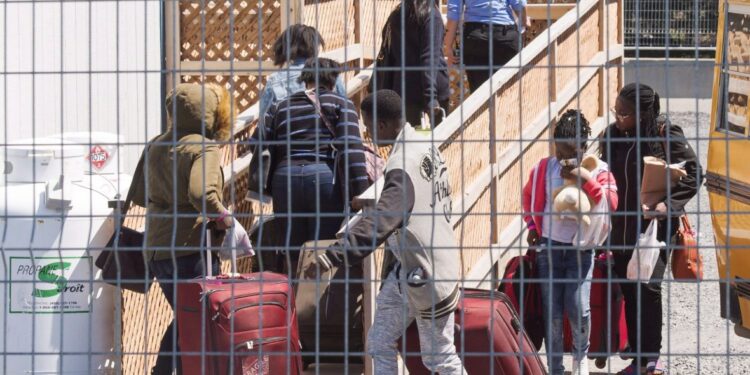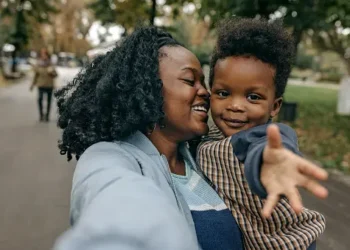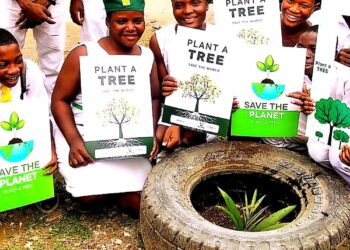Children and Social Work Act 2017
The Children and Social Work Act 2017 amended the Children Act 2004 to establish new local arrangements for safeguarding and promoting the welfare of children. A central feature of the revised arrangement is that three safeguarding partners – the local authority, NHS Integrated Care Boards (ICBs) and police forces – are responsible for determining how safeguarding arrangements should work in their area for them and relevant agencies. This is quite different to what obtains Nigeria despite the existence of the Child Rights Act in almost all of the States. In Nigeria, the courts and the Police only get involved when such cases are brought to them. Whereas in the UK, it is a collective effort. Consequently, it makes it difficult for any migrant to maltreat, neglect, abuse, or put a child in harm’s way.
Immediate Protection
Under section 44 of the Children Act 1989, a court may make an emergency protection order if there is reasonable cause to believe a child is likely to suffer significant harm if they:
• are not removed to different accommodation
Police protection
Under section 46 of the Children Act 1989, the police have the power to remove a child for a maximum period of 72 hours where they have “reasonable cause to believe that a child would otherwise be likely to suffer significant harm.”
Care orders and supervision orders
In some cases, it may be concluded that a child’s parents or carers are not able to provide safe or appropriate care for them and the local authority will decide to take the child into its care.
Under section 31 of the Children Act 1989, on the application of any local authority or authorised person (currently only the NSPCC) the court may make a care order or supervision order if it is satisfied:
that the child concerned is suffering, or is likely to suffer significant harm; and
Looked after children
A child is “looked after” if they are in the care of a local authority under a care order or if they are being provided with accommodation under section 20 of the Children Act 1989 for a continuous period of more than 24 hours (see section above on section 20 voluntary accommodation). Under section 22 of the Children Act 1989, local authorities have a general duty to safeguard and promote the welfare of looked after children. They are also under a duty to provide accommodation and maintain them in other respects. The Local authorities must arrange for a looked after child to live with their parents, another person with parental responsibility, or a person named in a child arrangements order relating to residence unless this would not be reasonably practicable or not consistent with the child’s welfare. Where it is not possible for the child to live with one of the above people, the local authority must place the child in “the most appropriate placement available. “Placement” for these purposes is defined as living:
• With a “relative, friend or other person connected with [the child] and who is also a local authority foster parent.”
• with a local authority foster parent who is not connected to the child.
• In a children’s home.
• In accordance with regulations. Local authorities are prohibited from placing children aged under 16 in supported accommodation. Though when making any decision regarding a looked after child, the local authority must give due consideration to the wishes of the child, their parents, any other people with parental responsibility for the child, and any other people the authority considers relevant.
Child Protection Section 47(1) states that, where a local authority:
(a) is informed that a child who lives, or is found, in their area is the subject of an emergency protection order, or is in police protection; or (b) the local authority has reasonable cause to suspect that a child who lives, or is found, in their area is suffering, or is likely to suffer, significant harm, the authority must make, or cause to be made, such enquiries as they consider necessary to enable them to decide whether they should take any action to safeguard or promote the child’s welfare.
Emergency Protection Powers
The court may make an emergency protection order with respect to a child under section 44 on application by any person, if the court is satisfied that there is reasonable cause to believe that a child is likely to suffer significant harm if the child:
(a) is not removed to accommodation provided by or on behalf of the applicant; or
(b) does not remain in the place in which the child is then being accommodated.
An emergency protection order may also be made by the court on the application of a local authority or an authorised person (i.e. a person authorised to apply to the court for care orders or supervision orders under section 31 of the Act) if the court is satisfied that:
(a) enquires being made with respect to the child (in the case of a local authority, under section 47(1)(b) of the Act) are being frustrated by access to the child being unreasonably refused to a person authorized to seek access; and (b) the applicant has reasonable cause to believe that access is needed as a matter of urgency.
Unfortunately, not a few Nigerian families have had and are still having challenges with institutions responsible for safeguarding children in the UK. Some parents had their children taken away from them for months, by the social services/court; some have court cases, while others are still under investigation. There are a number of Nigerian migrant parents going through the above which can be emotionally draining, physically exhausting and financially challenging. They are not finding it easy to live happily. It adversely affects many relationships as well. Many parents who have had their children taken away from them are going through different mental challenges such as isolation, loneliness and even depression. This is as a result of an experience which they had never imagined would happen to them. Never had it crossed their mind that a time would come when their children would be taken away from them for months on end.
There were cases of children of Nigerian migrants (who were students in the UK), taken away by the institutions responsible for child safeguarding, for alleged violation of their children’s rights. The adverse impact of this on the parents who are also students was huge and very unhelpful. Failure to understand the child safeguarding policies and system in the UK, is problematic on the minority community members.
Unfortunately, children from some Black, Minority and Ethnic communities are actually vulnerable, but the reason for their vulnerability is currently not too well understood and the reasons may be different for different groups of BME children (DCSF, 2009). However, in order to move Nigerian migrant parents far away from having trouble with the authorities regarding child safeguarding and protection, the followings steps are advisable to adhere to:
There is a need for the UK institutions in charge of child protection, safeguarding and rights, to look at the existing policies and system again, and ensure they accommodate the fact that the UK is no more what it used to be in terms of population groups. It is a very pluralistic society. This is not to say that policies guiding rights protection and safeguarding and child rights should be thrown away. However, they should be redeveloped with a global hindsight as the world is now a global village. All institutions responsible for child protection and safeguarding need to be better supported to strengthen their engagement with the minority community members. The UK Home office for example, would do well if they include links on issues of child safeguarding in their application process, so that applicants, especially parents/carers can have better understanding of what to do and expect, regarding the rights, safety, and protection of their child and other children, while in the UK.
Nigerians migrating to the United Kingdom, especially those with children (or those planning to start a family) should realize that there are belief systems and practices that may be acceptable in Nigerian society but may not be acceptable in other societies, such as the UK. This is especially true in the areas of child development, training, and general upbringing. It is important for everyone to have a basic understanding of the different cultures and belief systems within the existing community groups in the UK. This will ensure the safeguarding of children of whatever background in the UK. All the primary and secondary schools in the UK should be supported and encouraged to have a page or two, with links on child safeguarding, which could be given to parents alongside the admission package for their children.
Nigerian parents going to the UK with their children should ensure they fully understand the child safeguarding and protection laws in the UK. This will help them to adjust their child discipline and training methods to align with the acceptable child protection and safeguarding standards in the UK. Nigerians with children in the UK must make sure they do not infringe on their children and other children’s rights. They should forget about ‘this was how we used to train children in Nigeria’ posture. They should ask questions on anything regarding child’s rights that they are struggling with or don’t fully understand. They should find community groups, faith groups and charity organisations within their community, who can support them to understand issues of child safeguarding and protection better.
Parents should support their children better in school by understanding the importance of extra-curricular/ after school activities that aid the development of their children. They should not shy away from attending parents evening/ meetings in school, and creating time to relate more with teachers.
It is pertinent to know that child safeguarding and protection is not a UK initiative, nor was it developed to focus on any particular race or ethnic nationality. It is a universal precept that exists in different nations under different names. The sustainable development goals (SDGs) is the biggest pointer to the unity of purpose regarding the issue of child safeguarding and protection, as all the goals are meant to protect the future, today. Incidentally, the children of today are the future we must protect and safeguard today.
.
____________________ Fatoki Taiye Timmy is an innovative social development and human rights specialist with 15+ years experience in the development sector and with special focus on the West Africa Region. Has a strong track record of delivering technical support in educational programmes, highly competent in capacity development, institutional reforms, child rights and protection, youth development, and gender issues. He is a high achiever with goal-bound, time-conscious, strategic planning and good interpersonal relations. Has presented a number of papers including a paper on promoting the girl child’s access to education which was presented at the 2008 Bill and Melinda Gates International Youth Conference. Also presented ‘Youth Shadow Report on HIV/AIDS in Nigeria’, a United Nations General Assembly (UNGASS) 2008 Shadow Report with four other people. Skilled in project management, gender issues, child protection, youth development, community engagement, policy development, advocacy and lobbying, capacity, organizational development and mental health crisis management. He is a board member of three NGOs in Nigeria, two of which he is the chairman -Aspilos Foundation and Value Reorientation for Community Enhancement (VARCE). @lagbenjo (tweeter) Fatoki Taiye Timmy (Lagbaja) Facebook Taiye Timmy Fatoki (LinkedIn) Lagbajadon (Instagram). LinkedIn Facebook
















































































 EduTimes Africa, a product of Education Times Africa, is a magazine publication that aims to lend its support to close the yawning gap in Africa's educational development.
EduTimes Africa, a product of Education Times Africa, is a magazine publication that aims to lend its support to close the yawning gap in Africa's educational development.